|
21-22 November 2015, Creative Centre PSYforte organizes 5th international Forum PSYforte 2015: "What do the pictures say? Understanding of non-reflected".
Any picture can show us only part of the reality, its fragment within a frames and cut off by all that is behind them.
Our real world, of course, much broader then pictures and looking at it, we have a unique opportunity to suggest where the object is located, that is around ... We seem to have free - to finish the "context" of picture information and uncertainty compensate by our impressions. But, at the same time, it turns out that "visible" by us - not always is real.
• How do we understand that we see the picture?
• How can we learn from a photography something that it is not shown in it?
• How can we live "image" of what we saw?
• Why looking at the photo, we feel that it is "great," "it is impressive", "is darkly"?
• «To see by the heart": is it always to understand the meaning of what we saw?
• How can we determine whether the reality of what we see is in the photo?
• Why can we not like ourselves in the picture?
• Why images can be therapeutic?
• Manipulation with images, and a crisis of confidence. Why do we see faces where there are none?
And:
• Search and activation of internal resources - photoimage as a support.
• PhotoTherapy.
• Using of photo-projectives, metaphorical cards in work of psychologists, a psychotherapists.
• Qualitative research methods in psychology with the help of photographs.
The Forum will be of interest to anyone who uses photography as a tool in the analysis of social and communication studies; who is interested in the potential of technology phototherapy; specialists, uses photography in psychological and psychotherapeutic practice, pedagogy, social pedagogy.
November 22 post-forum workshops.
Organizer: Creative Centre PSYforte
Web: www.psyforte.ru
Tel.: +7 (499) 343-5-343
E-mail:
Этот e-mail адрес защищен от спам-ботов, для его просмотра у Вас должен быть включен Javascript
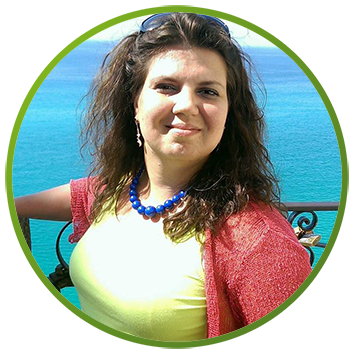 Ольга Перевезенцева (Россия). Директор Центра PSYforte, психолог, эксперт по техникам ФотоТерапии, Терапевтической Фотографии, ВидеоТерапии, Терапевтического Видео и Фото-арт-терапии. Ольга Перевезенцева (Россия). Директор Центра PSYforte, психолог, эксперт по техникам ФотоТерапии, Терапевтической Фотографии, ВидеоТерапии, Терапевтического Видео и Фото-арт-терапии.
Тема выступления: О чём говорят фотографии. Понимание неотражнного.
 Ирина Рыбникова (Россия). Клинический психолог, психотерапевт. Образование:МГУ, факультет психологии, по специальности клинический психолог (нейропсихолог); МИГТиК (Московский Институт Гештальт терапии и консультирования); Обучалась в психотерапевтическом экзистенциальном центре (Германия, Рютте). Специалист по развитию памяти, внимания и образного мышления. Соавтор серии книг по методике развития памяти, внимания и образного мышления у детей и взрослых. Ирина Рыбникова (Россия). Клинический психолог, психотерапевт. Образование:МГУ, факультет психологии, по специальности клинический психолог (нейропсихолог); МИГТиК (Московский Институт Гештальт терапии и консультирования); Обучалась в психотерапевтическом экзистенциальном центре (Германия, Рютте). Специалист по развитию памяти, внимания и образного мышления. Соавтор серии книг по методике развития памяти, внимания и образного мышления у детей и взрослых.
Тема выступления: тема будет уточнена в ближайшее время
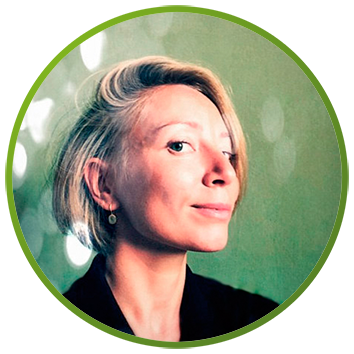 ЮМИНОВА МАРИНА (Россия). Клинический/ репродуктивный/ перинатальный психолог, супружеский/ семейный терапевт, искусствовед/ арт-коучер/ исследователь. ЮМИНОВА МАРИНА (Россия). Клинический/ репродуктивный/ перинатальный психолог, супружеский/ семейный терапевт, искусствовед/ арт-коучер/ исследователь.
Частная практика в www.yuminova.com
Тема выступления: ОНТОЛОГИЯ ХУДОЖЕСТВЕННОГО ОБРАЗА. Междисциплинарный доклад на стыке психологии и искусства посвящен актуальным проблемам специалистов, работающих с изображением. Производство и потребление изображений: страхи, мифы, конструкции, возможности и этика.
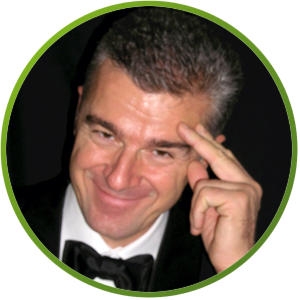 Fabio Piccini (Italy) MD PhD, Licensed Psychoanalist (IAAP Zurich, CH). Expert in using of PhotoTherapy techniques in threatment of bulimia and anorexia. Fabio Piccini (Italy) MD PhD, Licensed Psychoanalist (IAAP Zurich, CH). Expert in using of PhotoTherapy techniques in threatment of bulimia and anorexia.
Topic: What can you do with a selfie?
Skype-connection.
Beyond the shot of a simple selfie there is a whole world of reflections on one’s self. We can all point a camera at ourselves. But to make a truly thought-provoking, and useful self-portrait one must add something more than just creativity.
The current rage for selfies among shooters of all ages and backgrounds comes as no surprise. Self-portraiture has exerted an irresistible appeal to people from the medium’s earliest years, and, with smartphones, it’s easier than ever to shoot one.
Self-portraits make a personal statement. Many people got their starts in self-portraiture as insecure students who were curious about how they looked to the outside world. Yet everyone should learn the difference between images made to gratify one’s own vanity and those expressing one’s inner life.
Self-portraits can be a form of therapy that can reveal the emotionally complex personae that lies inside anyone of us.
They can be fun as you don’t need anyone’s permission to shoot them. And they’re also a great way to experiment without having to deal with the expectations of others. If the photos don’t work, you can delete them and start from scratch without having to give anyone an explanation.
Thus learning something more about selfie’s transformative powers can be useful for everyone and it’s highly recommended.
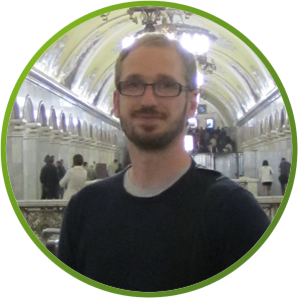 David Vinuales (Spain). PhD with European Mention in Art Education from the University of Barcelona and is registered Art Therapist and Photographer. David Vinuales (Spain). PhD with European Mention in Art Education from the University of Barcelona and is registered Art Therapist and Photographer.
His research is focused since 2005 on relational and existential aspects of photographic images, particularly in photography as therapy. This work has led him to publish scholarly articles in various media and recently the essay "The way of Photology”. From Photo Therapies to the picture"(2015).
He has been Professor of Photography and Image Theory in Arts Schools of Zaragoza and Huesca. He currently heads the Art Therapy program of Augustine Serrate Foundation, with whom he collaborates since 2009. It develops a specialized teaching in the form of lectures, workshops, seminars and courses in different European countries, highlighting their collaboration with: Master of International Practice on Art Therapy (ICTP Moscow), International School of Photography GrisArt (Barcelona), EFTI International Center of Photography and Film (Madrid), or Masters of Visual Arts Education (University of Barcelona).
Topic: THE WHY, THE HOW AND THE WHAT ABOUT THE THEAPEUTIC OF PHOTOGRAPHY.
Photography is an excellent way to get in touch and share our emotions. We can look at them, talk about what we see, tell stories, and especially we can take pictures to express what interested us in the world. All of this can be used for therapeutic, educational, relational, empowering or artistic processes; this is the real magic of photography. In this way I will discover What is underlying the therapeutic of photography, and then, Why and How it appears and works, developing the main ways of using photography for promote wellbeing and other related uses.
Skype-connection.
 Judy Weiser (Canada). Licensed psychologist, art-terapist and one of the pioneers одна из пионеров техник ФотоТерапии в мире. Директор Центра Фототерапии (был создан в 1982 году, чтобы поддерживать теоретическую и практическую базу по всему миру и библиотеку ресурсов в этой области) является наиболее авторитетным в мире специалистом по ФотоТерапии, Фото-Арт-Терапии, Терапевтической Фотографии и ВидеоТерапии. Judy Weiser (Canada). Licensed psychologist, art-terapist and one of the pioneers одна из пионеров техник ФотоТерапии в мире. Директор Центра Фототерапии (был создан в 1982 году, чтобы поддерживать теоретическую и практическую базу по всему миру и библиотеку ресурсов в этой области) является наиболее авторитетным в мире специалистом по ФотоТерапии, Фото-Арт-Терапии, Терапевтической Фотографии и ВидеоТерапии.
Topic: Greeting words for participants of 5th international Forum PSYforte 2015.
Skype-connection.
 Arianna Trettel. CEO and co-founder of Brain Signs a spinoff company of University Sapienza of Rome, Italy, applying EEG analysys and created after the founders received 2 prizes related to the quality of innovation of a neuromarketing application (Innovation BIC prize 2009, StartCup prize 2010). Arianna Trettel. CEO and co-founder of Brain Signs a spinoff company of University Sapienza of Rome, Italy, applying EEG analysys and created after the founders received 2 prizes related to the quality of innovation of a neuromarketing application (Innovation BIC prize 2009, StartCup prize 2010).
Since 2010 she has developed professional experiences in successful neuromarketing applications by EEG and biometric analysys in Italy. The main successful applications have been performed testing commercial TV ads for one of the largest TLC industries in Italy or testing fine art’s masterpiece perception during museum’s visits.
She teaches marketing research by neuroscience in master courses, since 2009 and, as Italian representative of NMSBA promotes in Italy innovation and scientifically qualified workshops related to neuromarketing field.
In the previous 20 years was executive manager for testing communication percepts in a large, annual recurrent, social campaign of fund raising committed by Catholic Church in Italy.
Topic: “Istincitive perception of beauty: neuroelectrical Brain Imaging during a real visit of a fine arts gallery in Rome”.
The 4 questions to be adressed:
“Is there some specific category of painted images more impressive than others?”
“What about the perception of art beauty by gender?
“How many second to define such perception at unconscious level?”
“Measured unconscious perception and declared judgment of like/dislike: do they agree?
Skype-connection.
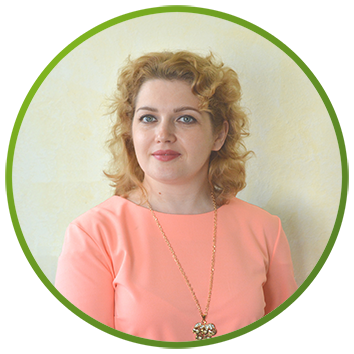 Ольга Хлебодарова (Россия). Психолог, педагог-психолог высшей категории, генеральный директор Центра социально-психологических услуг "Доверие", руководитель Ассоциации Психологов Московской области, руководитель Благотворительного проекта психологической помощи людям с онкологическими заболеваниями «О.П.О.Р.А.». Ольга Хлебодарова (Россия). Психолог, педагог-психолог высшей категории, генеральный директор Центра социально-психологических услуг "Доверие", руководитель Ассоциации Психологов Московской области, руководитель Благотворительного проекта психологической помощи людям с онкологическими заболеваниями «О.П.О.Р.А.».
Образование: МПСУ (бывш. МПСИ), факультет психологии, квалификация Психолог. Преподаватель психологии, по специальности "Психология".
Тема выступления: Фотообраз как опора, поиск и активизация внутренних ресурсов.
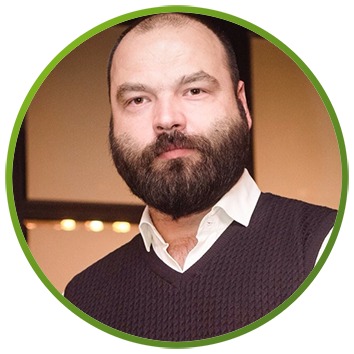 Евгений Морозов (Россия). Практикующий психолог, бизнес-тренер, автор и ведущий психологических трансформационных игр, соавтор проекта "Корпорация Решений" Евгений Морозов (Россия). Практикующий психолог, бизнес-тренер, автор и ведущий психологических трансформационных игр, соавтор проекта "Корпорация Решений"
Большую часть своей профессиональной карьеры он посвятил внедрению в психологическую практику методов, которые позволяют эффективно менять установки и привычки людей, опираясь на их сильные стороны. Обладая богатым арсеналом психологических техник, он успешно воплощает в жизнь эту задачу, помогая своим клиентам, участникам тренингов достигать существенных изменений в качестве их жизни.
Евгений Морозов получил профессиональную подготовку в Университете Российской Академии образования. Став дипломированным психологом, активно практиковал в сферах личностного роста и бизнеса, разрабатывал собственные тренинговые программы. Последние 10 лет активно работает с крупнейшими российскими компаниями. Успешно провел более 1000 тренингов открытого, корпоративного, выездного формата; более 3000 официальных консультаций по вопросам бизнеса и личностного роста с менеджерами и директорами предприятий.
Тема выступления: Фотообраз как опора, поиск и активизация внутренних ресурсов.
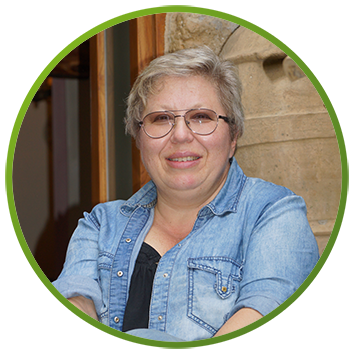 Мухаматулина Екатерина Александровна (Россия)– канд. психол. наук, директор издательства «Генезис», соавтор книги «Метафорические карты. Руководство для психолога» и наборов метафорических карт «Пути-дороги. Метафора жизненного пути», «Окна и двери. Метафора взаимодействия с внешим миром», «Дерево как образ человека» и др. Мухаматулина Екатерина Александровна (Россия)– канд. психол. наук, директор издательства «Генезис», соавтор книги «Метафорические карты. Руководство для психолога» и наборов метафорических карт «Пути-дороги. Метафора жизненного пути», «Окна и двери. Метафора взаимодействия с внешим миром», «Дерево как образ человека» и др.
Тема: «Метафорические фотокарты в работе психолога»
Метафорические (ассоциативные, проективные) карты – ныне популярный инструмент психологической работы. Хотелось бы представить его участникам форума, потому что часто колоды метафорических карт создаются на основе фотографий. В чем суть работы с картами? Каковы общие правила и ограничения в работе с ними? В чем специфика фотографических карт по сравнению с рисованными? Коротко рассказав об этом, я планирую представить фотографические моноколоды, созданные для психологической работы с разными проблемами, и показать возможности этой работы.
|













